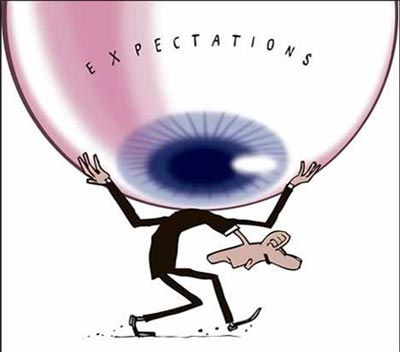 Too often we underestimate the power of a touch, a smile, a kind word, a listening ear, an honest compliment, or the smallest act of caring, all of which have the potential to turn a life around. ~Leo Buscaglia
Too often we underestimate the power of a touch, a smile, a kind word, a listening ear, an honest compliment, or the smallest act of caring, all of which have the potential to turn a life around. ~Leo Buscaglia
A group of frogs were hopping contentedly through the woods, going about their froggy business, when two of them fell into a deep pit. All the other frogs gathered around the pit to see what could be done to help their companions. When they saw how deep the pit was, the rest of the dismayed group agreed that it was hopeless and told the two frogs in the pit that they should prepare themselves for their fate, because they were as good as dead. Unwilling to accept this terrible fate, the two frogs began to jump with all of their might. Some of the frogs shouted into the pit that it was hopeless, and that the two frogs wouldn’t be in that situation if they had been more careful, more obedient to the froggy rules, and more responsible.
The other frogs continued sorrowfully shouting that they should save their energy and give up, since they were already as good as dead. The two frogs continued jumping as hard as they could, and after several hours of desperate effort were quite weary. Finally, one of the frogs took heed to the calls of his fellows. Spent and disheartened, he quietly resolved himself to his fate, lay down at the bottom of the pit, and died as the others looked on in helpless grief. The other frog continued to jump with every ounce of energy he had, although his body wreaked with pain and he was completely exhausted. His companions began a new, yelling for him to accept his fate, stop the pain and just die. The weary frog jumped harder and harder and – wonder of wonders! Finally leapt so high that he sprang from the pit. Amazed, the other frogs celebrated his miraculous freedom and then gathering around him asked, “Why did you continue jumping when we told you it was impossible?” Reading their lips, the astonished frog explained to them that he was deaf, and that when he saw their gestures and shouting, he thought they were cheering him on. What he had perceived as encouragement inspired him to try harder and to succeed against all odds.
This simple story contains a powerful lesson. Your encouraging and appreciating words can lift someone up and help him or her make it through the day. Your destructive words can cause deep wounds; they may be the weapons that destroy someone’s desire to continue trying – or even their life. You have the power–at all times, to choose your words and your act–never underestimate its influence on the other!
Words and thoughts are energy that carry power, and we need to choose them with care, if we want to progress in any spiritual path. Radhanath Swami says ‘We must fix our words, our actions and our mind on a higher principle to achieve a higher goal.’





